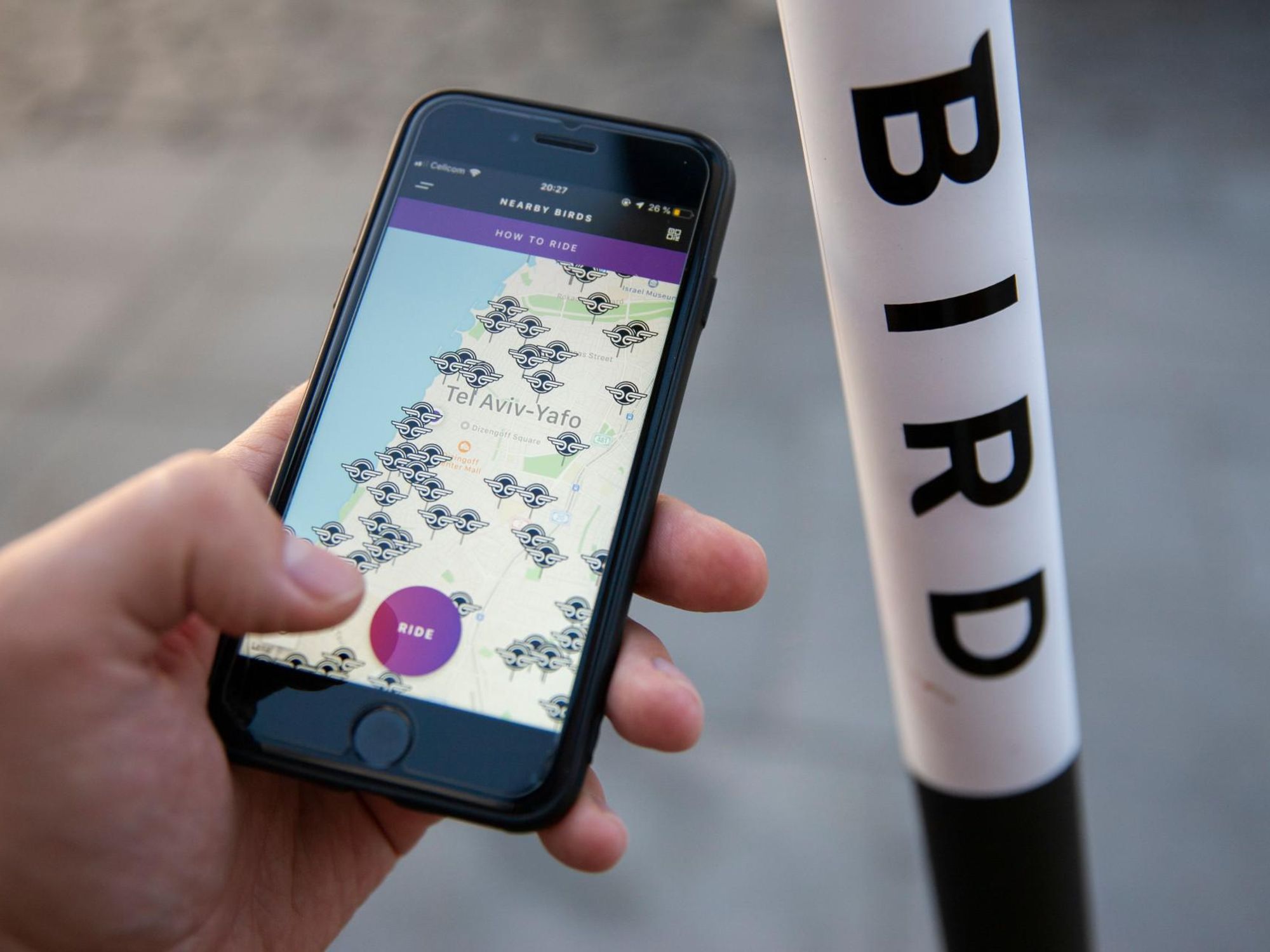Exclusive: Bird Plans to Go Public via SPAC at $2.3 Billion Valuation
Ben Bergman is the newsroom's senior finance reporter. Previously he was a senior business reporter and host at KPCC, a senior producer at Gimlet Media, a producer at NPR's Morning Edition, and produced two investigative documentaries for KCET. He has been a frequent on-air contributor to business coverage on NPR and Marketplace and has written for The New York Times and Columbia Journalism Review. Ben was a 2017-2018 Knight-Bagehot Fellow in Economic and Business Journalism at Columbia Business School. In his free time, he enjoys skiing, playing poker, and cheering on The Seattle Seahawks.

Bird Rides, the Santa-Monica e-scooter company that was once a startup darling but saw ridership plunge during the pandemic, is planning to go public through a so-called blank-check company, dot.LA has learned.
Bird is preparing to merge with Switchback II Corporation, a Dallas-based blank check company focusing on companies reducing carbon emissions, according to documents reviewed by dot.LA. Switchback has been marketing a $200 million PIPE offering in recent weeks that allows investors to buy shares of Bird at the IPO price.
Bird will receive hundreds of million in cash through the deal, which it can use to fund its operations as it struggles to achieve profitability and to expand to more markets. Last month, the company announced plans to double the size of its European operation, spending $150 million to enter 50 new cities.
The transaction values Bird at $2.3 billion, below the $2.85 billion valuation it reached in the beginning of 2020. But that was before the pandemic, which drove 2020 revenue down to $95 million, a 37% decline from 2019, according to a deck pitching the deal seen by dot.LA.
Neither Switchback nor Bird's media relations team responded to a request for comment.
The financials included in the slides reveal a company quickly burning through the $1.1 billion of cash it has raised since 2017, with a $226 million adjusted EBITA loss in 2019 and a $183 million loss last year.
However, Bird expects to trim this year's losses to $96 million and to $28 million in 2022 before reaching profitability in 2023. But that is predicated upon bringing in $815 million in 2023 revenue. In pre-pandemic 2019, the company generated $151 in revenue. It expects to bring in $188 million this year.
Bird, desperate to preserve cash soon after the seriousness of COVID became clear, laid off 406 employees via a Zoom call that former employees described as dystopian. The move reduced the company's Santa Monica staff by half. In another cost cutting move, Bird put its recently remodeled offices up for sublease last Fall.
In its pitch deck, the company says ridership has rebounded as much of the world emerges from strict lockdowns. Topline revenue increased 81% over the past month, though part of that reflects the seasonality of the e-scooter business with increased demand during warmer months of the year.
Bird touts an $800 billion market opportunity in micromobility in its pitch to potential investors, a more favorable regulatory environment post-COVID, more durable scooters, as well as consolidation in the industry. It also says it is valued relatively cheaply at 2.8 times 2023 projected revenue.
Formed in 2019, Switchback is led by co-CEOs Scott McNeill and Jim Mutrie, both former executives at RSP Permian, an oil and gas driller that was acquired by Concho Resources in 2018, which this year was acquired by ConocoPhillips.
Switchback merged with the electric vehicle charging company ChargePoint last year.
The Information reported in January that Bird was raising $100 million in convertible debt and has held discussions over the past few months with at least three special purpose acquisition companies (SPACs), including former Uber executive Emil Michael's DPCM Capital. Bloomberg first reported in November Bird was exploring the possibility of going public via a SPAC.
Founded by the brash former Uber executive Travis VanderZanden in 2017, Bird became the fastest company in history to reach unicorn status in 2018, a milestone that has become less rarified of late as startup valuations have soared ever higher.
Offering startups a quicker and less scrutinized route than traditional IPOs, SPACs became all the rage last year, with 248 companies going public through that route compared to 59 the year before, according to SPAC Analytics. There have already been 315 this year though recently the market appears to be cooling.
- What Is a SPAC? - dot.LA ›
- Bird Seeks to Unload Santa Monica HQ - dot.LA ›
- Bird makes SPAC Official as it Reveals Spate of Injuries - dot.LA ›
- Bird Scooters Are Kicked Out of Santa Monica - dot.LA ›
- Bird makes SPAC Official as it Reveals Spate of Injuries - dot.LA ›
- Scooter Startup Bird 2021 Revenue and Losses Were Up in Q2 - dot.LA ›
- Escooter Startup Superpedestrian Takes to LA Streets - dot.LA ›
- Bird Scooters Heads Towards Its Public Market Debut - dot.LA ›
- Bird’s First Day on the NYSE Ends Flat - dot.LA ›
Ben Bergman is the newsroom's senior finance reporter. Previously he was a senior business reporter and host at KPCC, a senior producer at Gimlet Media, a producer at NPR's Morning Edition, and produced two investigative documentaries for KCET. He has been a frequent on-air contributor to business coverage on NPR and Marketplace and has written for The New York Times and Columbia Journalism Review. Ben was a 2017-2018 Knight-Bagehot Fellow in Economic and Business Journalism at Columbia Business School. In his free time, he enjoys skiing, playing poker, and cheering on The Seattle Seahawks.



 Image Source: Revel
Image Source: Revel
